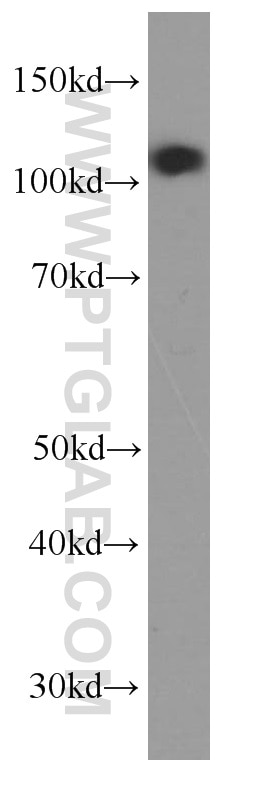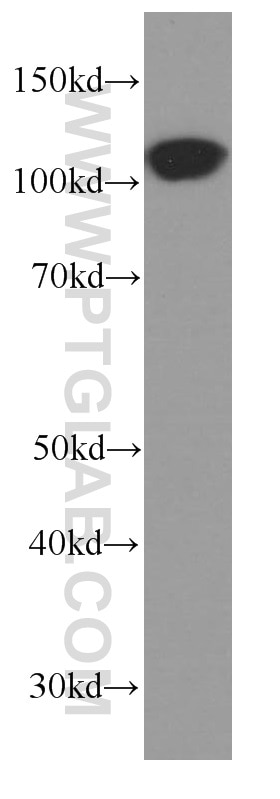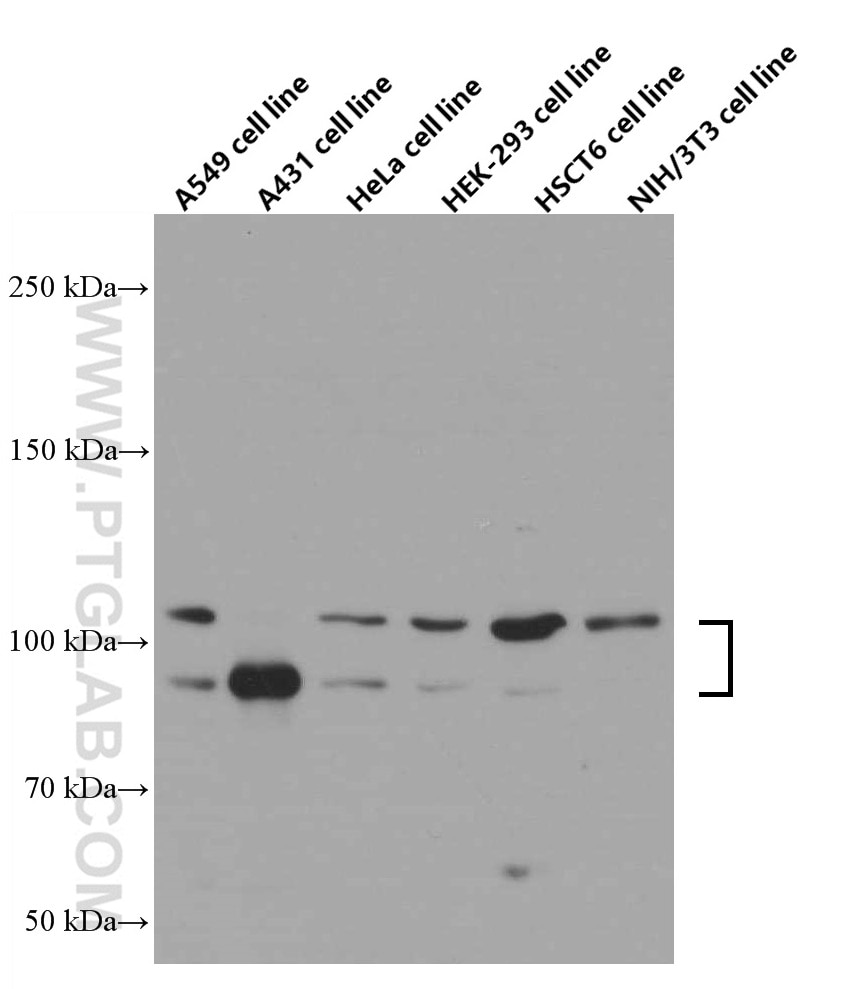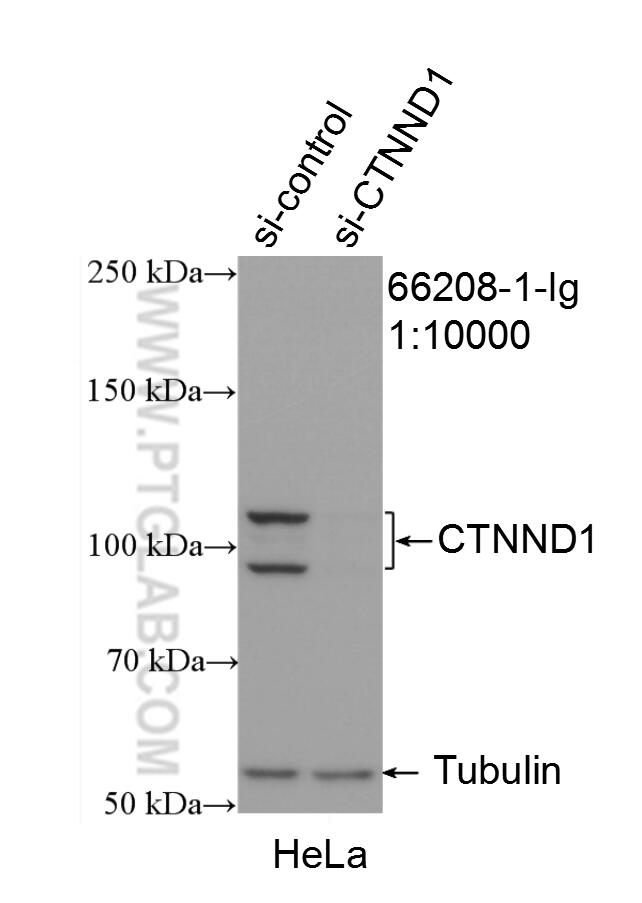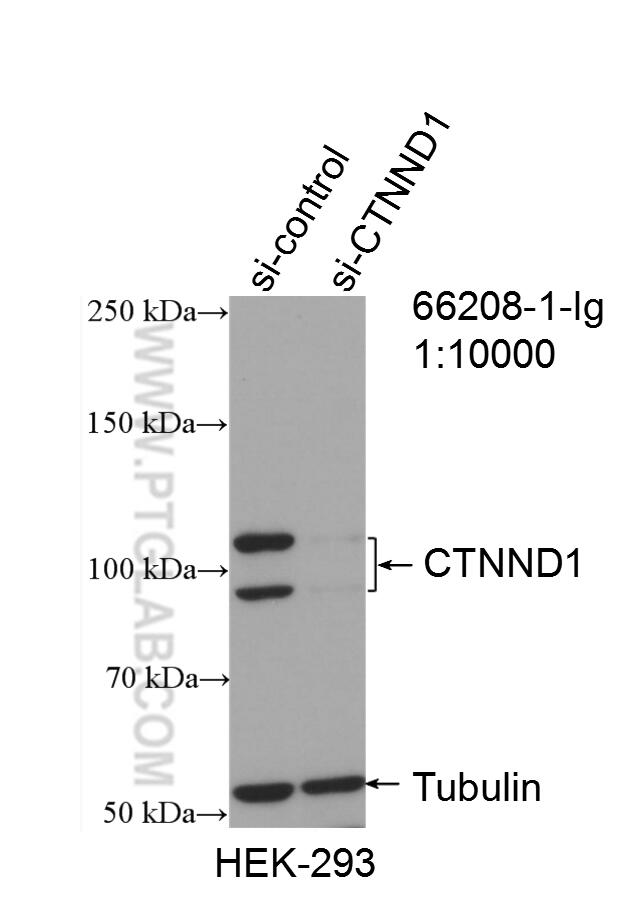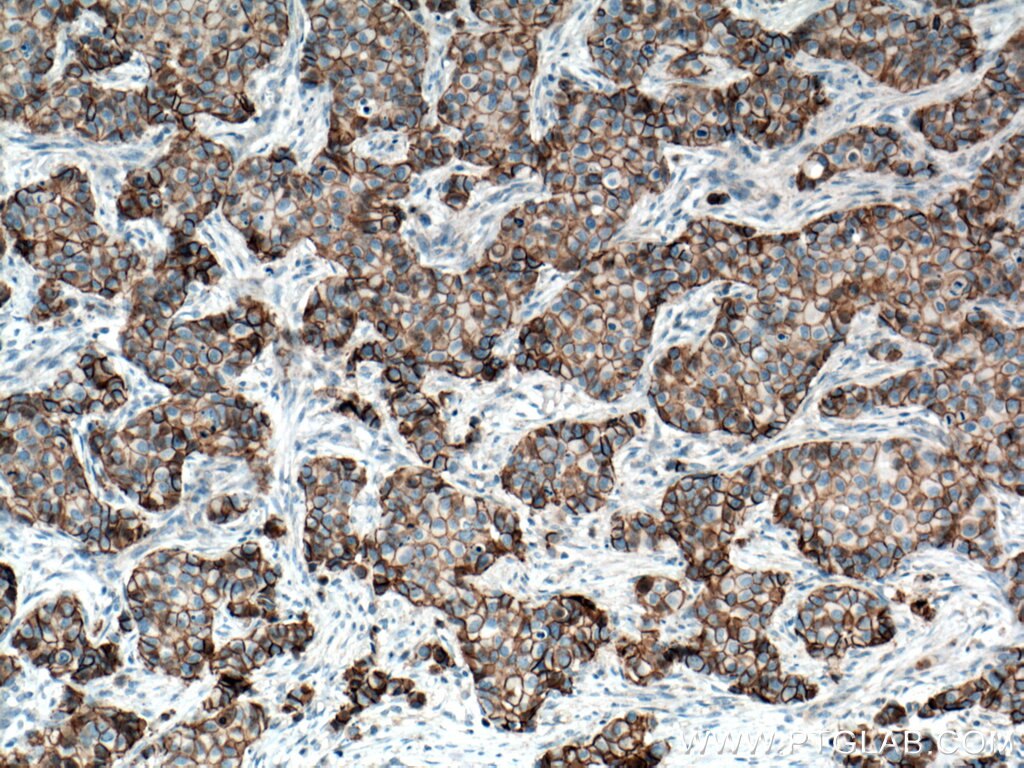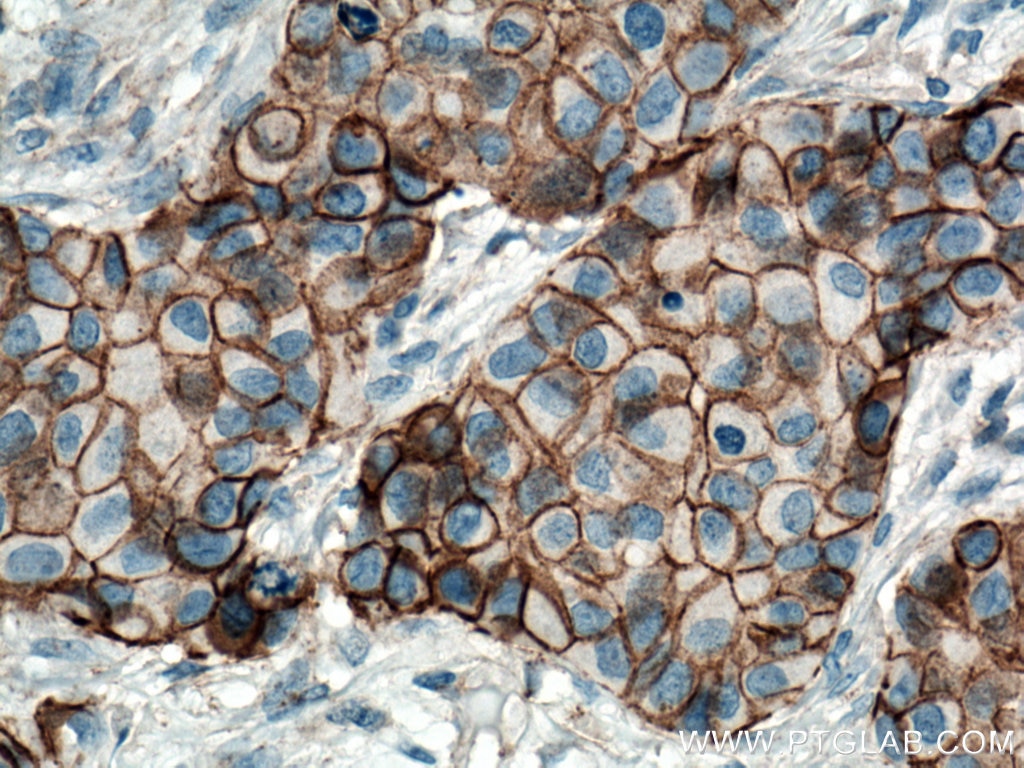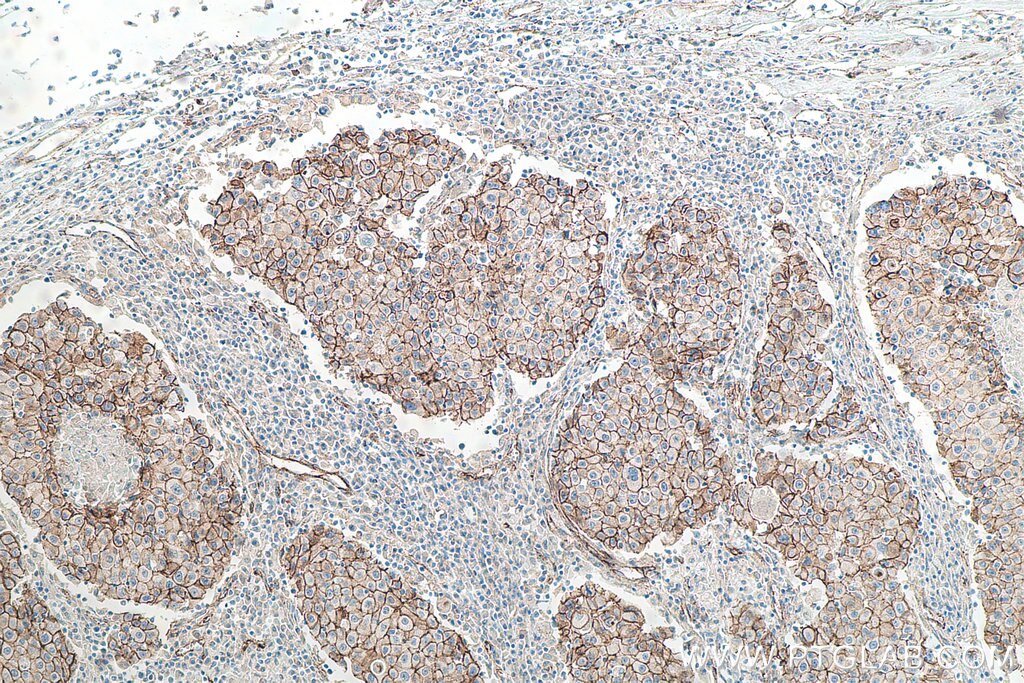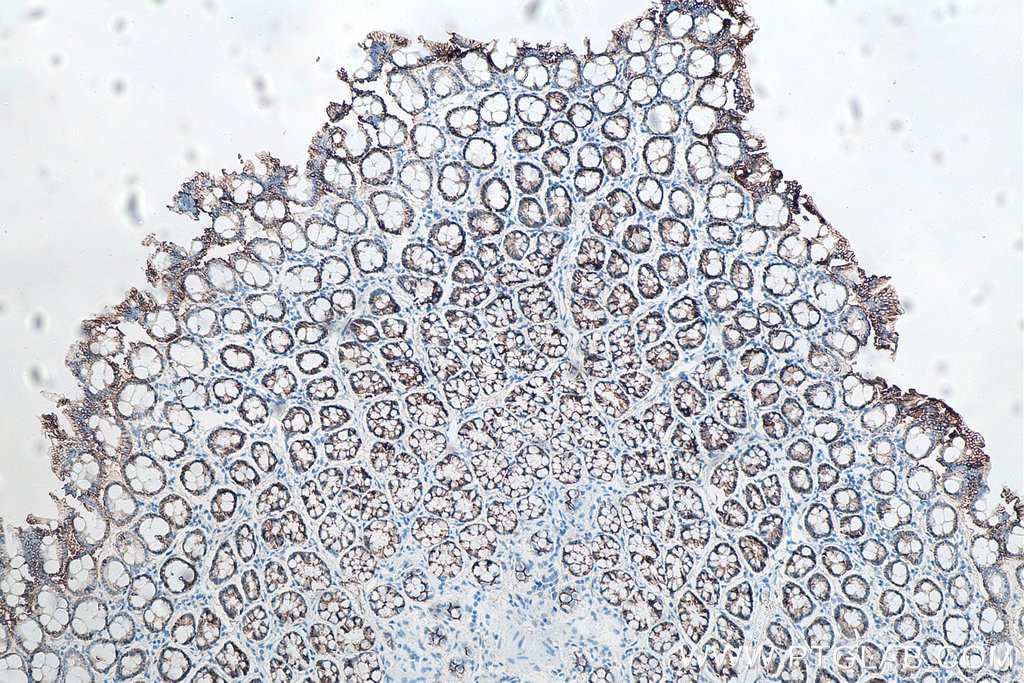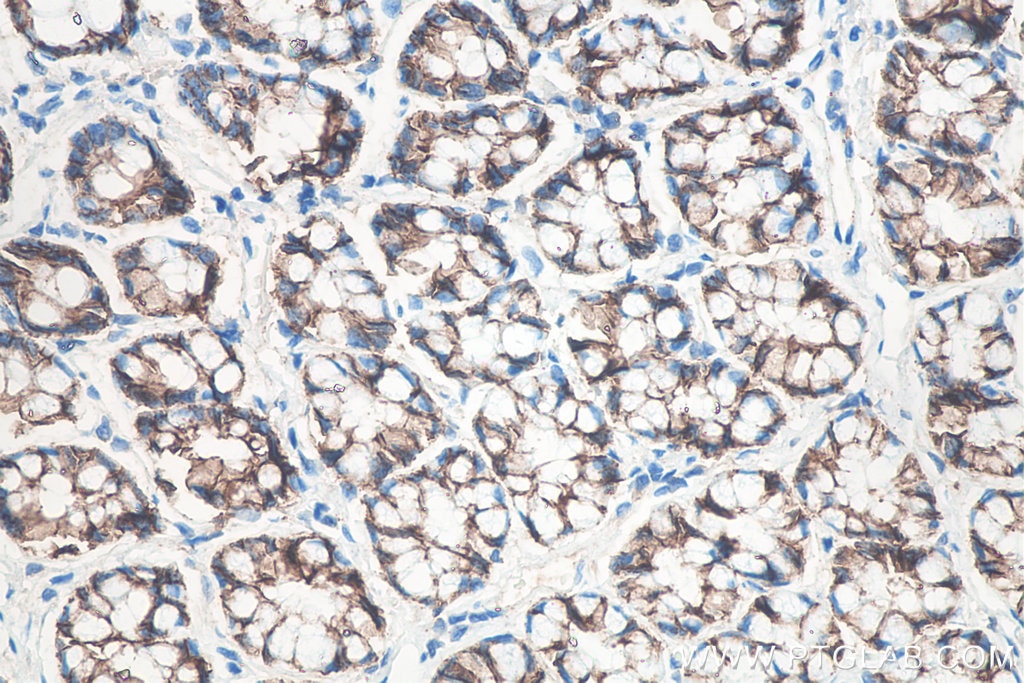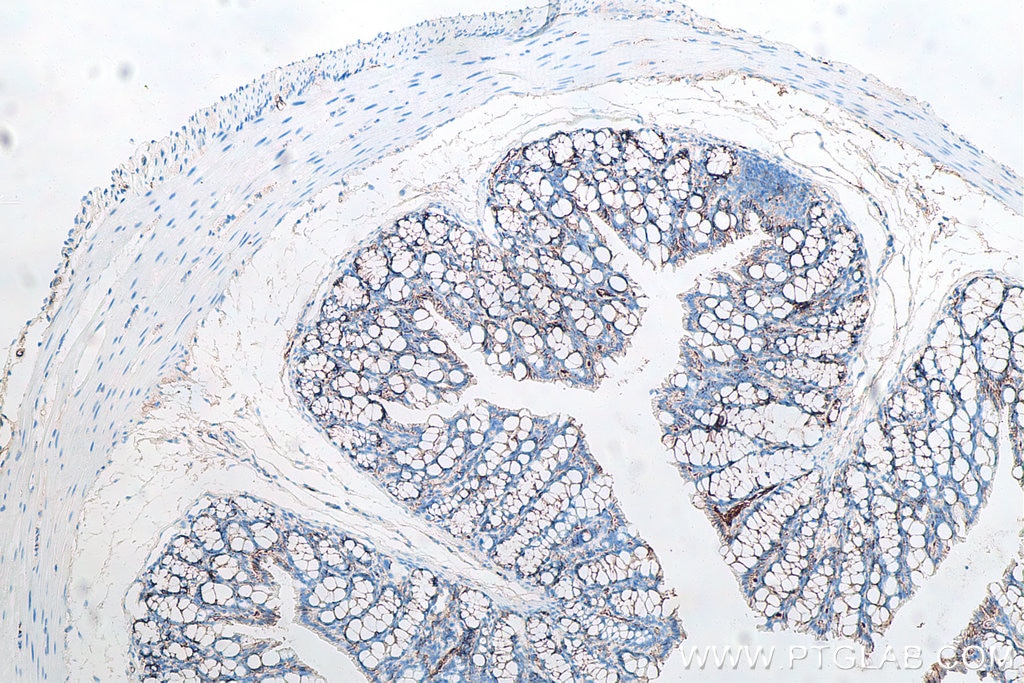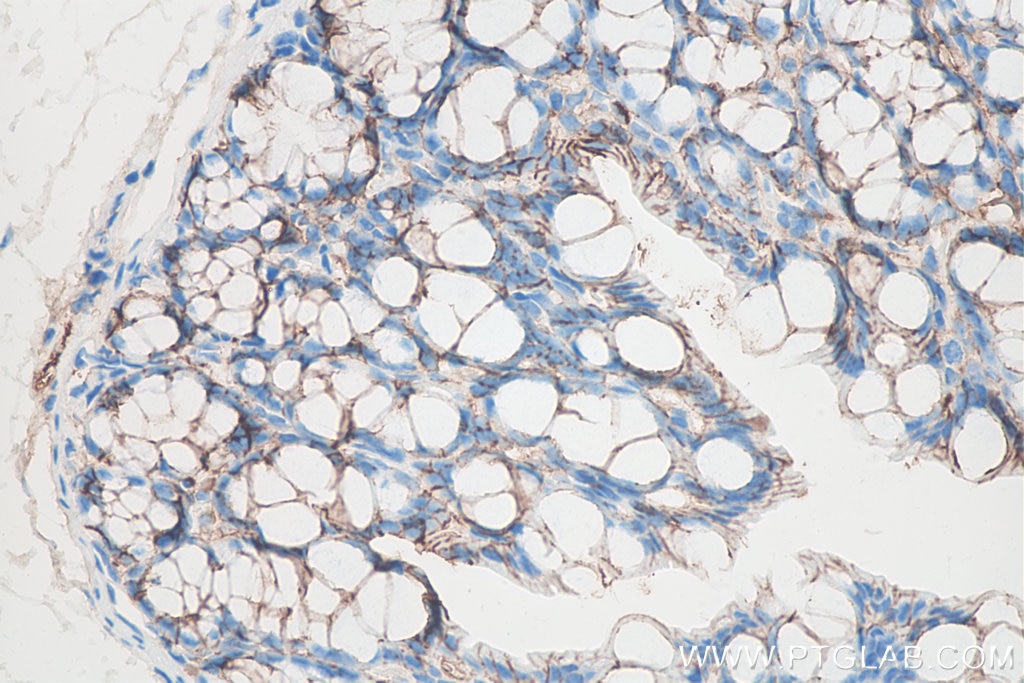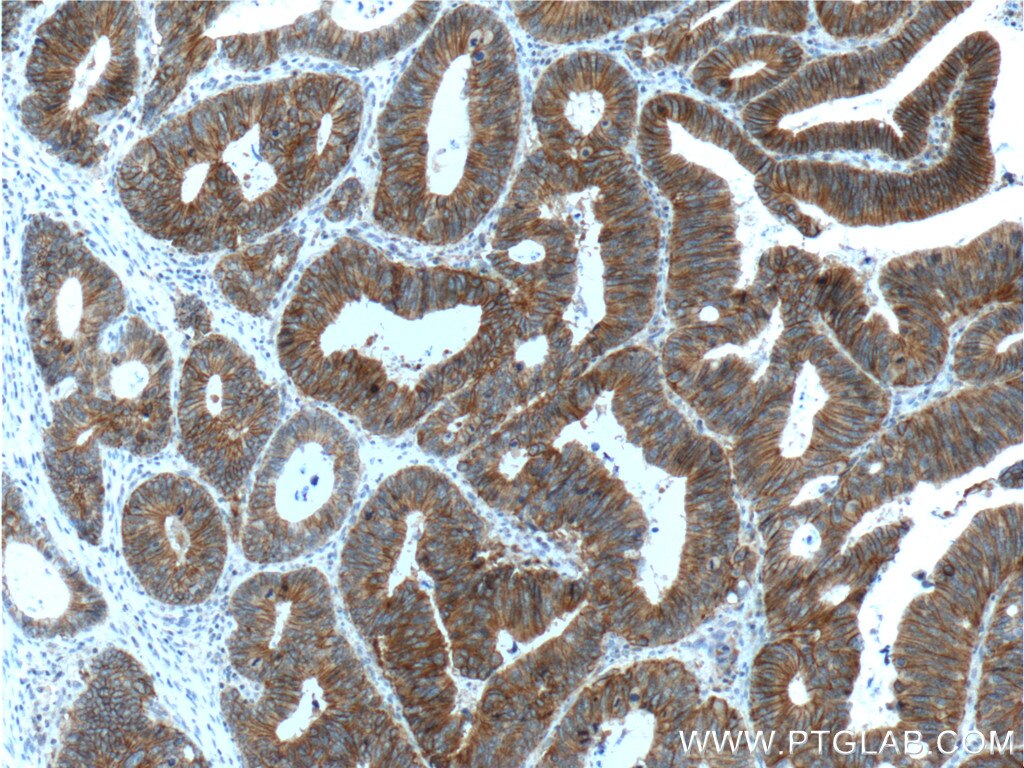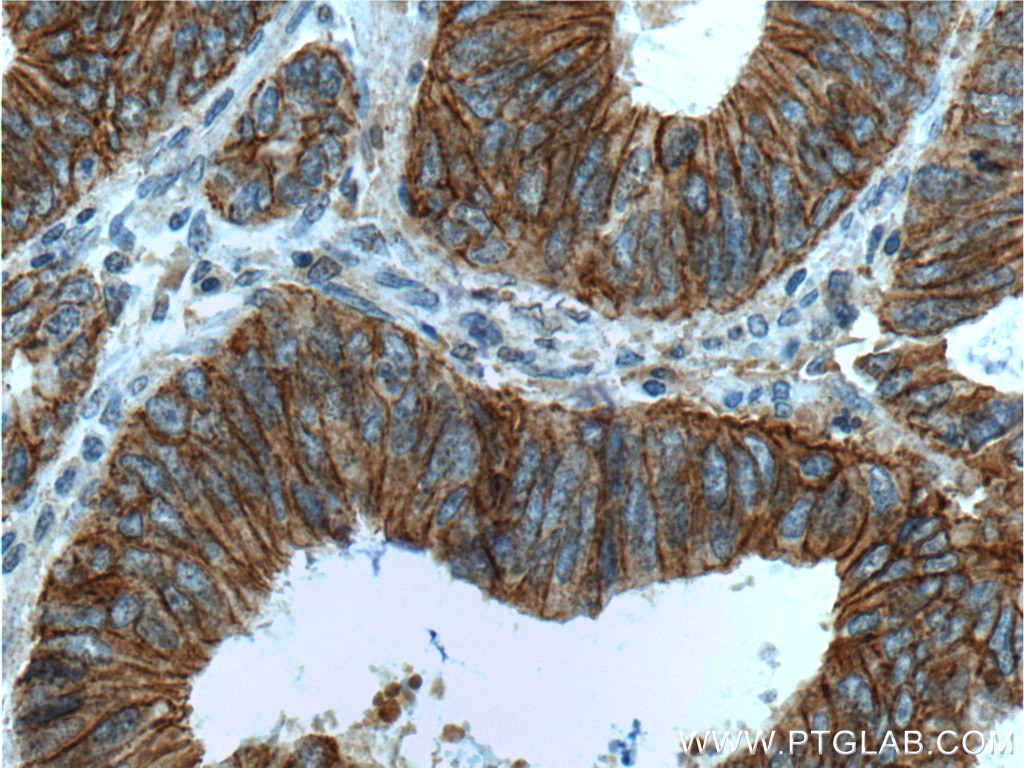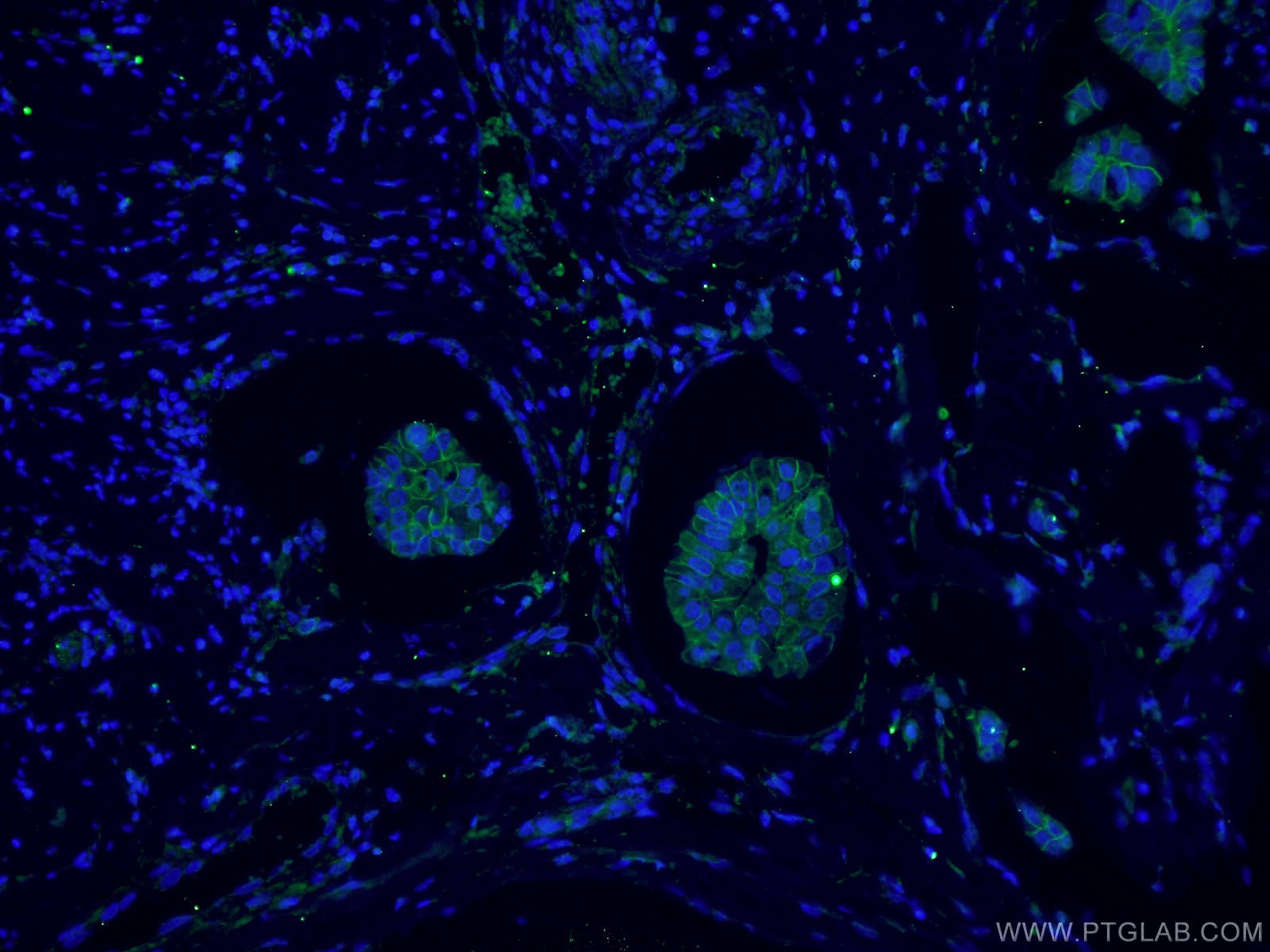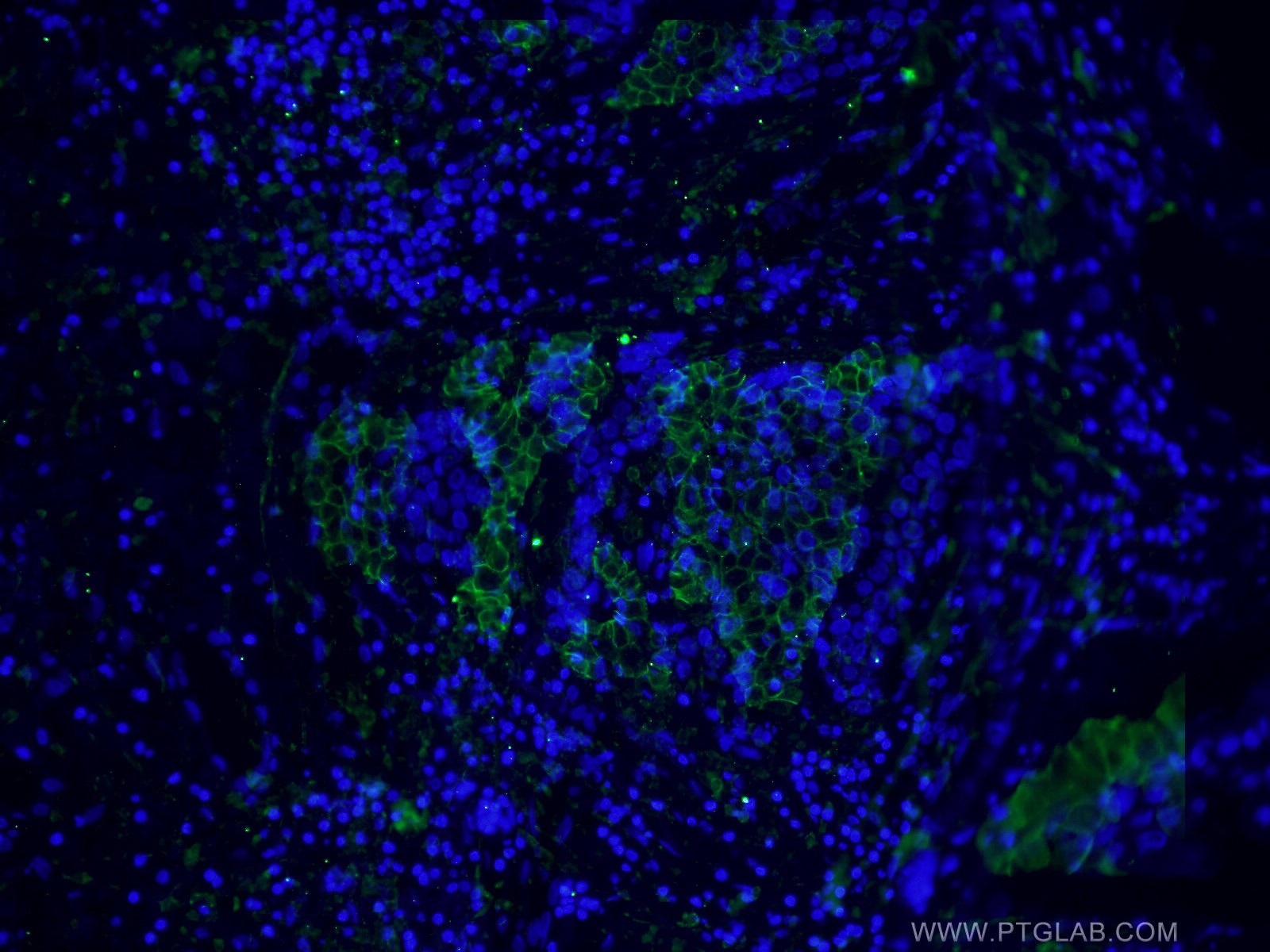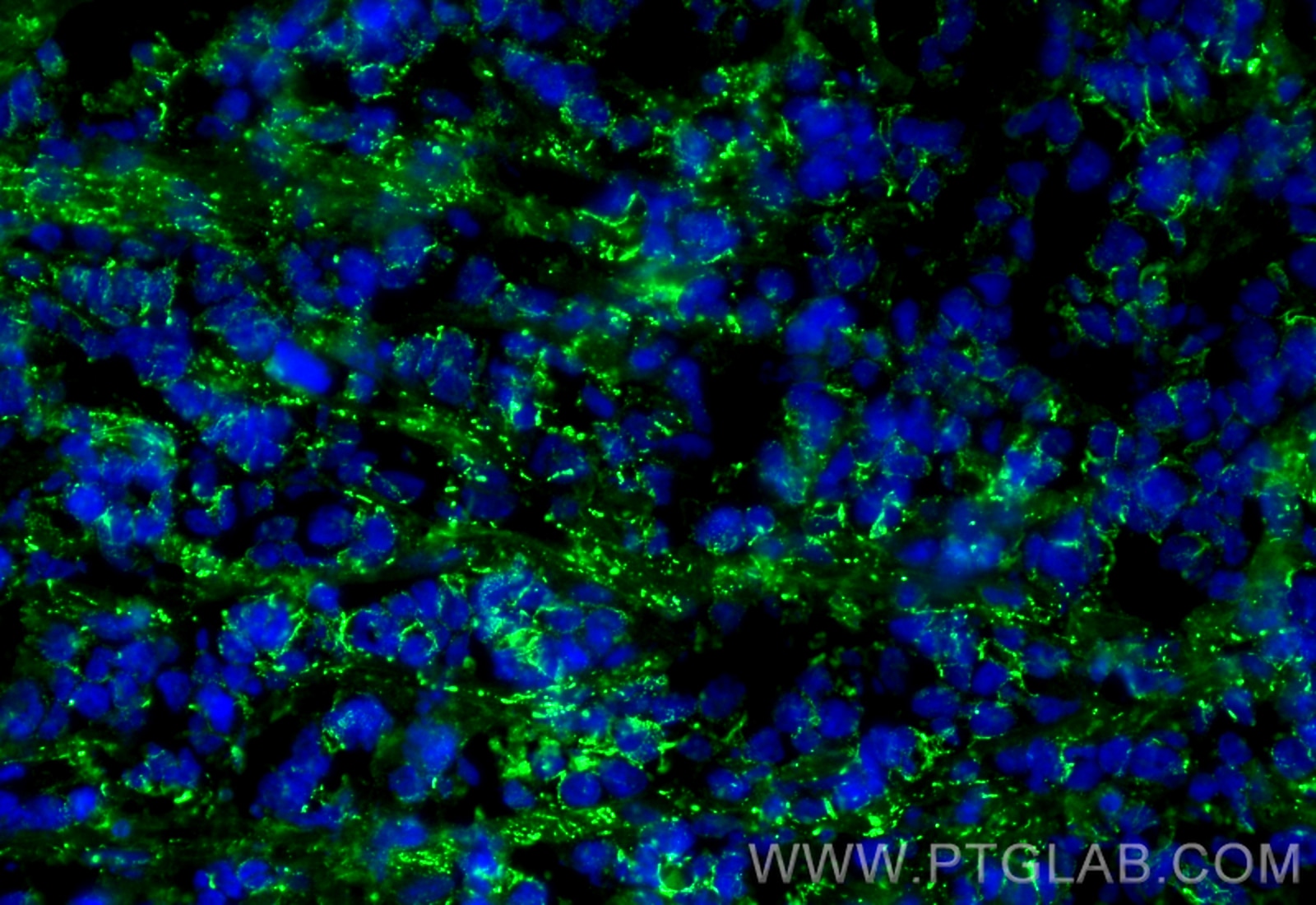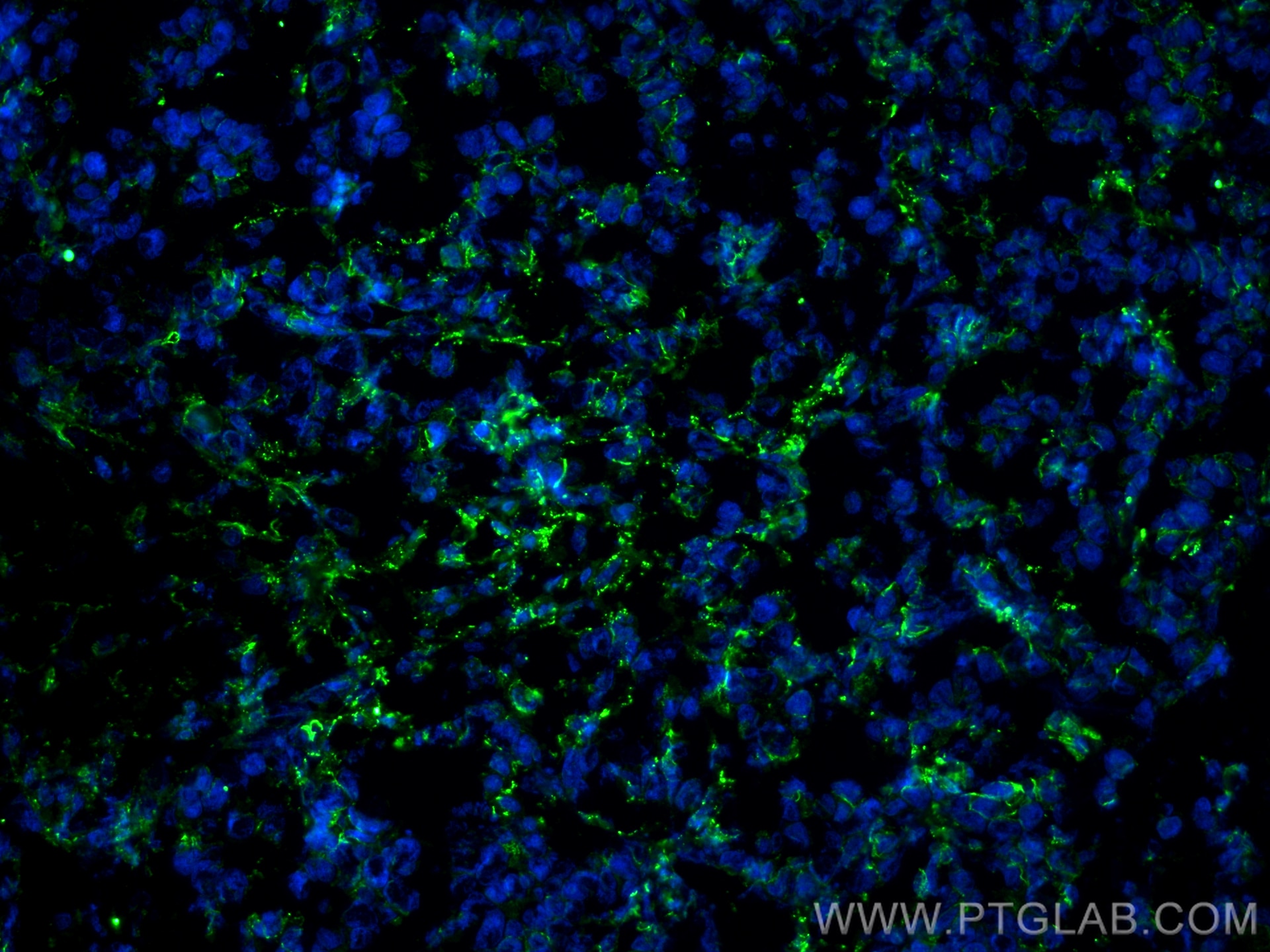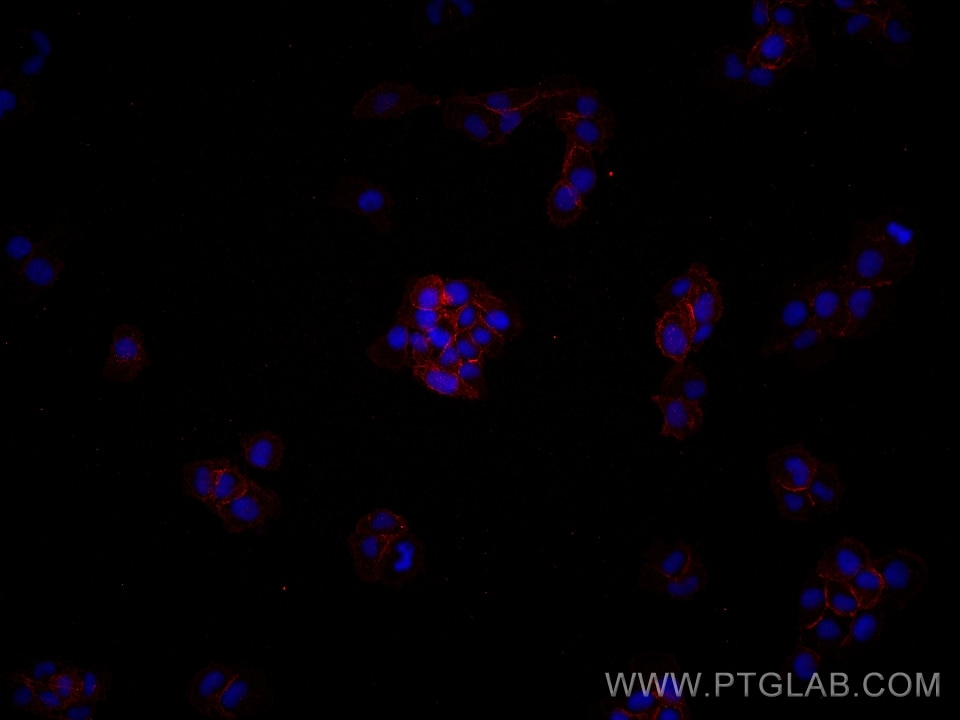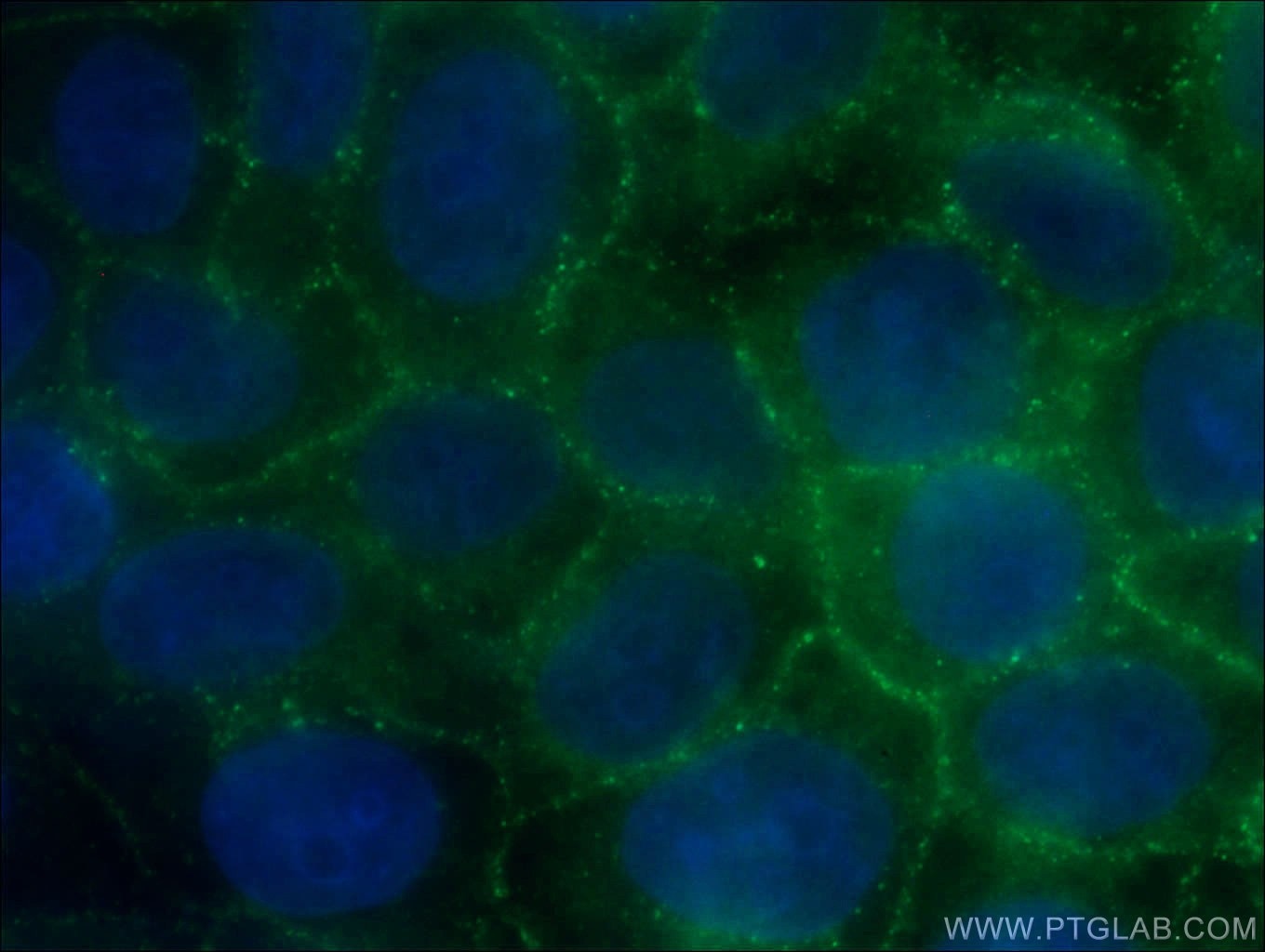- Phare
- Validé par KD/KO
Anticorps Monoclonal anti-p120 Catenin
p120 Catenin Monoclonal Antibody for WB, IHC, IF/ICC, IF-Fro, Indirect ELISA
Hôte / Isotype
Mouse / IgG2b
Réactivité testée
Humain, rat, souris
Applications
WB, IHC, IF/ICC, IF-Fro, Indirect ELISA
Conjugaison
Non conjugué
CloneNo.
2F7H8
N° de cat : 66208-1-PBS
Synonymes
Galerie de données de validation
Informations sur le produit
66208-1-PBS cible p120 Catenin dans les applications de WB, IHC, IF/ICC, IF-Fro, Indirect ELISA et montre une réactivité avec des échantillons Humain, rat, souris
| Réactivité | Humain, rat, souris |
| Hôte / Isotype | Mouse / IgG2b |
| Clonalité | Monoclonal |
| Type | Anticorps |
| Immunogène | p120 Catenin Protéine recombinante Ag2824 |
| Nom complet | catenin (cadherin-associated protein), delta 1 |
| Masse moléculaire calculée | 948 aa, 105 kDa |
| Poids moléculaire observé | 90-120 kDa |
| Numéro d’acquisition GenBank | BC010501 |
| Symbole du gène | p120 Catenin |
| Identification du gène (NCBI) | 1500 |
| Conjugaison | Non conjugué |
| Forme | Liquide |
| Méthode de purification | Purification par protéine A |
| Tampon de stockage | PBS only |
| Conditions de stockage | Store at -80°C. 20ul contiennent 0,1% de BSA. |
Informations générales
Catenins were discovered as proteins that are linked to the cytoplasmic domain of transmembrane cadherins (PMID: 9653641). p120 catenin, also called p120 ctn or catenin delta-1, regulates cell-cell adhesion through its interaction with the cytoplasmic tail of classical and type II cadherins. p120 catenin is a tyrosine kinase substrate implicated in cell transformation by SRC, as well as in ligand-induced receptor signaling through the EGF receptor, the PDGF receptor, and the CSF1 receptor. Different expression patterns of p120 catenin in lobular and ductal carcinomas of breast have been reported: membrane stain for ductal carcinoma and cytoplasmic stain for lobular carcinoma (PMID: 24966968). Different isoforms of p120 catenin are variably expressed in different tissues as a result of alternative splicing and the use of multiple translation initiation codons (PMID: 19150613).
